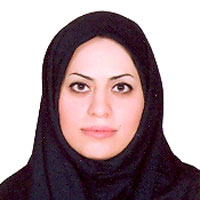A Comparison of Perfect Nature in Islamic Philosophy with Fravashī in Khosravani Wisdom
The concept of perfect nature (ṭabā ‘tāmm) has been derived from a Hermetic anecdote and, according to Illuminationists, is among nūrī (luminous) and archetypal truths. The union of the soul and archetype (intellect) is possible through purification, asceticism, and liberation from intermediate and immaterial worlds. This view, which was also shared by Abu’l-Brakāt al-Baghdādī and some others before Suhrawardī, was explained and interpreted by Mullā Ṣadrā and his students. Mullā Ṣadrā believed that perfect nature is a single intellectual form and the highest level of Man’s existence which enjoys the highest degree of immateriality. He called this level the “Holy Spirit” and emphasized that there is no difference between the soul and perfect nature and, basically, the whole identity of the human soil originates in their perfect nature. Although perfect nature is closely related to Hermetic teachings, one cannot ignore its Khosravani roots. In Mazdayasnan teachings, reference has been made to the states and modes of the soul, the most supreme of which is Fravashī or Farvahar. Fravashī is the heavenly essence or an aspect of Mīnuy-e Xerad (or spirit of wisdom) which reveals itself to ascetics and teaches them religious principles. In the present paper, after examining the views of Islamic philosophers regarding perfect nature, the authors have tried to demonstrate that this concept is rooted in the pre-eternal essence of wisdom, which, in conformity with Suhrawardī’s etymology of both Eastern (Khosravani) and Western (Hermetic) branches of philosophy, is among the most fundamental principles of epistemology. In fact, in order to attain his own illuminationist purpose, which is to revive the pre-eternal substance through posing the concept of perfect nature, Suhrawardī has brought Khosravani and Hermetic philosophies together. Mullā Ṣadrā has also advocated him in this regard.
- حق عضویت دریافتی صرف حمایت از نشریات عضو و نگهداری، تکمیل و توسعه مگیران میشود.
- پرداخت حق اشتراک و دانلود مقالات اجازه بازنشر آن در سایر رسانههای چاپی و دیجیتال را به کاربر نمیدهد.


